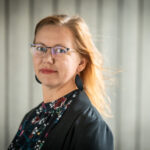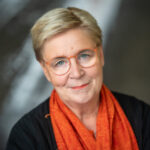Planetary youth research is Research Professor Sofia Laine‘s approach to youth research, in which young people and youth are studied in relation to the carrying capacity of the planet. Laine published planetary youth research framework proposal (Laine 2023) in November 2023. It encourages youth research to turn towards a ‘global ethics’ through its four dimenstions:
1) Youth research co-working with young people. Youth research is one of the key disciplines engaged in listening to, collaborating with and studying the young generations, and therefore it has crucial role when co-developing best practices to involve young people in society, research and politics today and in the future. The future of the planet, including of Homo sapiens, necessitates the greater involvement of young generations in discussions and decisions about the future—their future. Currently, Laine is working together with members from the young people’s climate change and nature group (NUOLI) under Prime Minister’s Office. The initiative for their co-working came from the youth. The youth planned a survey for diversity of youth organisations that participated in the Youth Climate Summit 2023.
2) Studies on young people’s planetary citizenship and postcolonial youth research. This dimension underlines the importance for the youth research to elaborate methodological cosmopolitanism, decolonial and postcolonial approaches, and more global youth research. This dimension analyses also the possibilities of “planetary citizenship” (see Salonen et al. 2024). Existing geopolitical inequalities in knowledge production between the Global North and the Global South should be disrupted by giving greater recognition to Southern theories and allowing them to take on a new role. Currently, Laine is continuing the collaboration with Moroccan and Algerian, jointly studying a gardening school for young people in Morocco. This collaboration began during the Academy of Finland-funded What Works project, and article was published in Social Sciences December 2024: Gardening School to Support Youth Inclusion and Environmental Sustainability in Morocco.
3) Multi-species studies on young people in relation to their planetary wellbeing and “planetary praxis”. Here Laine proposes applying indigenous and ecofeminist research methods into youth research. She also encourages studies on eco-social pedagogy, as well as studies on young people’s environmental attitudes and nature connectedness. With upper secondary schools in Finland Laine has started to build together with young people something that is called “Planetary Garden Field Station”. Planetary Garden is new multi-species way of thinking (see Clément 2021) how to protect all kinds of life, and simultaneously grow food corps with minimal harm to other species. Planetary garden is like a miniature of the whole planet, teaching to take care of it, respecting all kinds of life, seen here as one practical solution of “planetary praxis” (see Heikkinen et al. 2024).
4) Studies on new environmental ethics: action, emotional engagement and self-care. The importance of embodied arts and collective creative movements in coping with, adapting to and living with the ecological crisis is explored in this dimentsion. Laine has been elaborating e.g. Trebbe Johnsson’s Radical Joy for Hard Times practice (see the story-birds on the map over Finland). Social rituals strengthen more-than-human relations and open a collective space for environmental ethical work on the era of climate catastrophe. Here research also asks, how to live within social and planetary boundaries, what are the alternative economies, and what kind of consumption corridor studies would be beneficial in youth studies. The process model of eco-anxiety and ecological grief (Pihkala 2022) is highly relevant here. Recently, together with Panu Pihkala and Juni Sinkkonen Laine wrote a blog on how Environmental Emotions Arrived in European Youth Policy – Youth research (nuorisotutkimus.fi).
Network for Planetary Youth Research
We are currently building a loose network of researchers interested in working globally within the themes of Planetary Youth Research. If you would be interested to join, please contact Sofia Laine.
Past events in English
Nordic Youth Research Symposiums (NYRIS) 2024 – Youth in a Just and Fair World. The working group Planetary youth research and young people’s climate emotions was led by Sofia Laine and well distinguished eco-emotions researcher Panu Pihkala. There were three sessions and 14 presentations on this theme.
- Start year:
- 2023
- End year:
- 2030
Hankkeen johtaja

Sofia Laine
PhD, title of docent in Youth Research (University of Tampere)
Research Professor
+358 44 416 5374
sofia.laine@youthresearch.fi
Hankkeen tutkijat

Eila Kauppinen
Doctor of Philosophy (Education), PhD
Research Director
+358 44 416 5335
eila.kauppinen@youthresearch.fi
Malin Fransberg
PhD
Post-Doctoral Researcher
malin.fransberg@youthresearch.fi

Sofia Laine
PhD, title of docent in Youth Research (University of Tampere)
Research Professor
+358 44 416 5374
sofia.laine@youthresearch.fi


